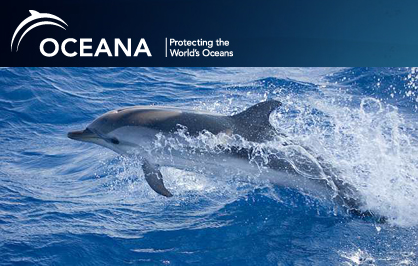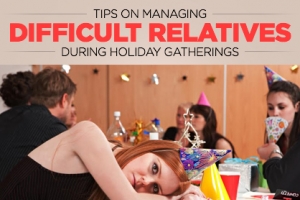Help save the dolphins with Oceana
Dolphins need your help, stat! The largest international organization devoted solely to ocean conservation, Oceana, is shedding light on the dolphin dilemma. They are asking for your help to protect dolphins from bycatch and to promote responsible fishing.
Many marine animals like dolphins are accidentally caught and drowned in commercial fishing nets across the U.S. An estimated 800 dolphins and 900 porpoises are killed or seriously injured every year in U.S. fisheries with the largest amount of dolphin mortalities occurring in the Northeast and Mid-Atlantic fisheries. Bycatch is a result of fishing techniques like gill netting, trawling and purse seining that can all lead to dolphin deaths. The worst are gillnets, which are weighted walls of mesh that sink to the ocean floor that trap anything large enough to get its fins trapped inside. Oceana works to prevent this type of bycatch.
“Dolphins, like many other marine animals, are often the product of bycatch, the untargeted catch of fishermen who are out fishing for something else entirely. For example, large drift nets, which are often referred to as ‘walls of death,’ catch anything that swims in their path, including dolphins. Fifteen minutes underwater is all it takes for a trapped dolphin to drown. Each year, hundreds of dolphins die in U.S. fisheries alone … Oceana’s campaign on responsible fishing is helping make governments and fisherman accountable for the bycatch they bring in,” Michael Gardner, communications fellow of Oceana, told LadyLUX.
There are over 40 species of dolphins and each has its own distinctive physical and behavioral characteristics. They are all very intelligent and social marine mammals and play a vital role in the ocean eco-system. Many species are apex or top-level predators and control the populations of fishes and squids.
Although dolphins and other marine mammals are protected by the Marine Mammal Protection Act, there is much more to be done to reduce the impact commercial fisheries.
Oceana is asking for your help to contact the government and the National Marine Fisheries Service to let them know how many dolphins’ lives are at stake and how to prevent more deaths. They are working to ensure that fishery managers minimize the deaths of dolphins and other marine mammals and count and report the dolphins they do catch.
“We’ve already made a difference. Last year we won a court case that required the entire northeast US coast to report catches of dolphins and other untargeted animals and we banned driftnets in the Mediterranean. We also convinced the government of Chile to place professional observers on fishing fleets. But we’re not done and we need all the help we can get,” Gardner said.
According to Oceana, the NMFS agency should oversee an increase in the monitoring of fisheries to provide more information of the number of dolphins affected by bycatch. The NMFS should fully fund the implementation of the Marine Mammal Protection Act, as efforts to protect dolphins will be a big challenge unless resources are dedicated to entirely executing the requirements of the law. The agency should update stock assessments of dolphin populations and distribute additional observer information to fisheries and in different regions to create more precise bycatch estimates. Lastly, the NMFS should require commercial fisheries to minimize their bycatch of dolphins at the bottom of gillnets and trawls.
“Oceana campaigns to stop bycatch by encouraging the federal government to enforce existing laws. We want them to count every fish, bird and animal that is caught, including all bycatch; cap those catches at a level that ensures sustainability of the species and the ecosystem; and control the fishing activities to ensure the cap is enforced. Together these measures will help ensure that more dolphins and other creatures don’t end up dead as a result of this wasteful practice. After all, marine mammals like dolphins are important. Healthy oceans need them,” said Gardner.
You can help the dolphins by writing to the NMFS and even President Obama urging them to take action on the Oceana website. You can also join Oceana and become a wavemaker, donate to the cause or adopt a dolphin and receive a personalized adoption certificate. Your donation or adoption funds will go directly to helping make our oceans a safer environment for dolphins and all marine life.
To learn more about dolphins and bycatch or to become a wavemaker today, visit www.oceana.org.
Tagged in: causes, oceana, philanthropy, oceans, non-profit, bycatch, dolphins, nmfs, responsible fishing, nets, dolphin campaign,

LadyLUX via Oceana, Jesus Renedo



